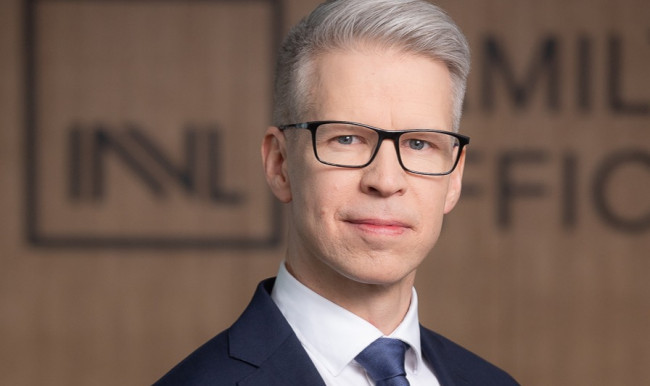
Estonian large companies provide vital services
Rait Kondor
Investment Strategist at INVL Family Office
Looking at Estonia's most valuable companies in this year's TOP101, one thing that stick out is that there are only a handful exporter at the top, and many companies are in the business of providing nationally important services.
This means that the TOP101 of Estonia's most valuable companies is like the economy's lifeline as well structure and infrastructure. Of the six Estonian companies with the highest value, four are banks, which can also be considered infrastructure companies, as they facilitate the movement of funds between companies and private individuals, and manage supply and distribution of fresh capital to companies and private individuals.
Using loans granted by banks, companies can expand, increase, improve and restructure their operations, while private individuals can buy housing and cars, for instance. This creates in the market new demand for housing, offices, factories and warehouses, which companies can then fill with new housing and buildings. This generates new demand for bank loans, and in turn restarts the money cycle. The fact that the largest companies in Estonia are banks and among the 101 largest companies 24 are real estate companies shows in which areas Estonia has managed to increase its wealth the most widely.
Among the largest companies in Estonia are also electricity producers and the operator of the electrical grid. This proves how important is electricity for sustaining the kind of life we have become accustomed to in the last thirty years, especially if you take that the starting point of modern living arrangements is the advent of the Internet.
Functioning infrastructure is important and valuable – for instance, Estonia's largest holding company Infortar owns, in addition to the Estonian-Finnish and Estonian-Swedish maritime transport lines (Infortar is large shareholder in Tallink), also the Estonian and Latvian natural gas distribution network, 40% of the Finnish natural gas market and if things go according to plan, the natural gas distribution network in Western Poland.
It is worth noting that if, for example, if you rank Swedish listed companies by size, the biggest company Investor AB is also a holding company which got its beginning from SEB Bank more than 100 years ago and has big holdings in large Swedish industrial companies. An interesting parallel is that Infortar's large shareholders come from Eesti Ühispank, which later was acquired by Swedish-owned SEB.
The rest in the top four by size among Swedish listed companies are production companies that sell their products worldwide. These include Atlas Copco, which produces air and gas compressors, Volvo, which produces trucks, and Assa Abloy, which produces locking systems. Strong export capacity in industrial production is one of Sweden's sources of economic prosperity.
Viru Keemia Grupp (VKG), the largest industrial company in Estonia, can today still use oil shale for the production and sale of shale oil, but under the terms of the European green policy, VKG must soon find new ways to maintain its current size and export capacity in the Estonian business landscape.
In addition to VKG, there are only two other industrial companies – Graanul Invest and BLRT Grupp – among the top twenty large companies in TOP101. This also reflects the problems in the Estonian economy where it is difficult to build up a large industry, and explains why there are so many companies specialising in meeting domestic demand in the real estate and construction sector. Whether this is also due to shortage of labour force, high energy prices, distance to export markets, high labour taxes or investment capacity should be asked from the officials of the Ministry of Economic Affairs and Communications and from our Minister of Minister of Economic Affairs and Industry.
In other respects, infrastructure companies dominate the list of top-ranked companies as the top thirty include two telecommunications service companies, a heat production and distribution company, an operator of national grid, a port landlord, and a water management company.
The first software development company, Nortal, ranks 29th in the list of Estonian large companies, followed by Breakwater Technology (54th) and Helmes (71st). If we add Bolt and Wise, both of which have Estonian roots and play an important role in software development, the representation of information technology sector in the structure of the Estonian economy is somewhat more prominent. In comparison, in the technology company rankings compiled by Prudentia and Siena Secondary Fund, the value of Bolt including its foreign subsidiaries is estimated at 5.5 billion euros, while Wise, which is already trading on the London Stock Exchange, is valued at 8.6 billion euros.
On the other hand, when we talk about the bloodstream and infrastructure of the economy, it is possible to classify also Wise and Bolt under these categories. Wise facilitates low-cost money transfers around the world, while Bolt provides a mobility platform for passenger transportation.
Keeping all this in mind, it is no wonder that over the past ten years, more and more professional investors and asset managers around the world are increasingly interested when considering new investments, in infrastructure companies that generate stable cash flow.


